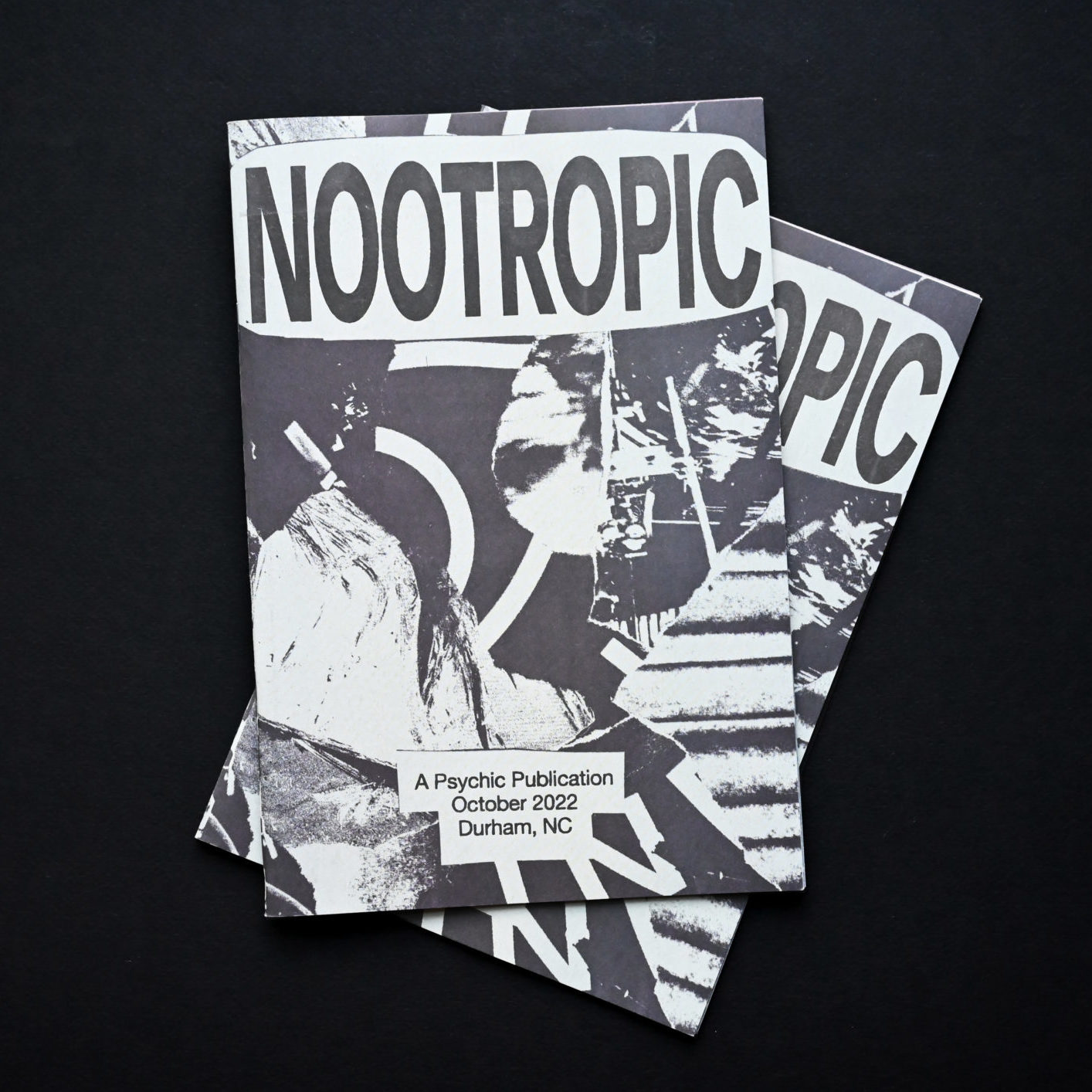An Interview with Uwade Akhere
October 15, 2022 - By Nootropic
Uwade Akhere is a Nigerian-born, North Carolina-raised artist whose recent releases have included singles “The Man Who Sees Tomorrow,” “Lodarore,” “Nostalgia,” and “Do You See the Light Around Me?” which was released via the Psychic Hotline Singles Series earlier this year. You might also recognize her striking voice from the opening song of Fleet Foxes’ Grammy-nominated 2020 album, Shore.
PSYCHIC HOTLINE: Something really cool about your musical output thus far is even though there isn’t a ton that’s been officially released, you’ve really put out a genuinely wide-ranging spectrum of sound. Each sounds so different to me musically and vibe-wise, but specifically Uwa, because of your singular voice. When you approach songwriting, what do you find you think about the most? Personal catharsis, storytelling…?
UWADE AKHERE: Thank you! As one of my friends always likes to say, “We contain multitudes!” I’d say my songwriting process shifts quite a bit. Most days I’m just noodling around on the guitar trying to find an interesting chord progression. In those moments melody is most important to me and gibberish words function as place-holders. Other days I only write lyrics. Words, journal entries, acrostic poems, haikus replace the place-holders and express what the melodies evoke for me. It’s a very haphazard process, honestly. I’m finding it harder to write from personal catharsis, though, even though that’s the most satisfying. I guess I’m running out of feelings.
PH: Can you talk a little bit about your experience at Newport Folk Festival this past summer? Being a part of the Psychic Hotline set, learning the songs of your collaborators, hearing your own songs being sung back to you by this heavy-hitting crew of fellow musicians?
UA: It was incredible. I’m relatively new to the world of music, but as a consumer I’ve loved so many of the artists I got to play with for years. Truly, all I felt was awe and gratitude the entire time. Everyone was so cool. So delightful. So talented. So inspiring. So free. Couldn’t have asked for a better experience with them. Initially I had no idea that I would be performing with the Psychic Hotline band or what that would even look like. The end result blew my mind, especially hearing everyone else’s songs with the group. Ten out of ten!
PH: Going off of that, how has your touring experience been in general? Between these dates for The Tallest Man on Earth and then all of these Fleet Foxes gigs—these are just such huge audiences for a newer artist. But every time I’ve seen you play in front of ’em, you seem like such a natural fit in that context! Does that come easily to you? Have you always been a self-assured performer?
UA: My touring experience has been pretty stellar thus far. I’ve certainly had my fears—before and during shows—about performing to such huge crowds. It’s never particularly easy for me to get on stage, but once I’m there things feel quite natural. In high school I did a lot of extracurricular acting-performing so in some ways I’m used to it. Every show is unique. I’ve definitely had my moments of not really feeling a show and trying to astral project off the stage, but for the most part it’s been a great time. Also, I’ve found that on these last two tours everyone in the crowd has been so excited to see The Tallest Man and Fleet Foxes that their energy is already palpable when I get on stage. All I have to do is tap into it and remember that, ultimately, it’s not about me. It’s about the music.
PH: I don’t want to lean too hard into the ”balancing academia and being a professional music thing,” BUT I do also feel I have to ask about it, because you are managing an extremely demanding graduate program in classics at Oxford currently (and previously studied classics at Columbia), and all of this touring and music making… Do you have to be super disciplined?
UA: I don’t! I’m not sure that balance exists. If it does, I have not discovered it. I just do one thing when it’s most important, then I do the other, haha.
PH: This might be too specific of a question, but since you’re a fellow North Carolinian, and Psychic Hotline is an aggressively North Carolinian creative pursuit, what do you think the “sound” of NC is? I don’t specifically mean a contemporary band, or even anything that’s strictly musical, but are you ever out and about and hear something and you think, “Wow, that reminds me of home”?
UA: This is entirely non-musical but I think when I hear the word “y’all” I am immediately in North Carolina. And when I miss home I say it much more often. Growing up I never felt particularly southern, and still don’t. But something about that word makes me feel like I’m sipping on an Arnold Palmer, sitting in a rocking chair on the front porch of a house built in the early 1900s with a fresh box of Bojangles next to me.
PH: I’ve read in other interviews that you’ve been inspired musically by everybody from Victor Uwaifo to Julian Casablancas, and that your father taught you to sing. But I’m curious if there is anything else specifically from your adolescence in Charlotte, North Carolina that has really influenced your sound? Anything specific to NC music in general?
UA: I listened to a lot of Sylvan Esso in middle/high school, haha! So I like to think they influenced my sound. (Wild that I know them now!) I also think that folk/country music has certainly influenced me. It’s one of those genres that I didn’t appreciate too much when I was younger, but as time went on I started to love it, specifically older songs and artists. An NC favorite of mine is Elizabeth Cotten.


